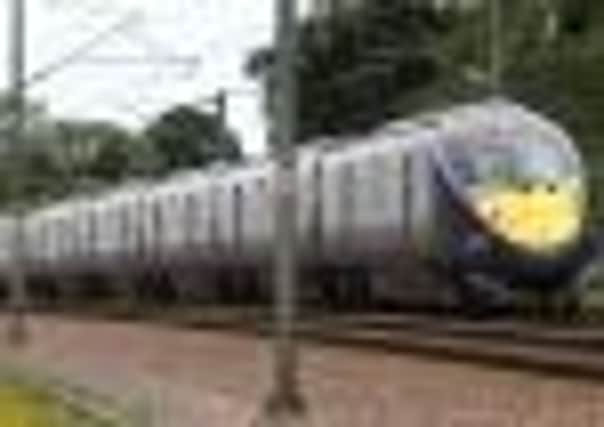Stuart Andrew: This fast track to the future is one train the North can’t afford to miss


It marks what has been, at times, a fraught and emotive stand-off between businesses in the Midlands and the North on the one hand, and local residents along the proposed route on the other.
For my constituency in Leeds, this is more than a transport infrastructure project. It is about changing the lives of future generations. It is about boosting inter-city connectivity, and giving Yorkshire a chance in the long-term to access new business markets and encourage investment in areas in desperate need of it.
Advertisement
Hide AdAdvertisement
Hide AdThis isn’t just a train line. It is a huge opportunity for those regions that have borne the brunt of the recession and fared far worse in terms of unemployment. It is a means of creating jobs and increasing competition between the North and the South. Even those who never, ever take the train will reap the benefits.
The numbers show just how unbalanced our economy has become. During the last decade, the eight major cities outside of London created around 221,000 jobs, while London created 600,000 – three times as many as all eight cities put together.
And if we look at investment in transport infrastructure projects, while an average of £915 is spent per person living in London and the South-East, only £239 is spent per person living in Yorkshire and Humberside.
Figures like these leave us in no doubt that cities like Leeds are failing to reach their economic potential, in large part because of under-investment.
Advertisement
Hide AdAdvertisement
Hide AdIn basic terms, people living in these cities are simply not seeing the standards of living that are clearly achievable. As Yorkshire people, this means that you are not getting the job opportunities and pay packets that you deserve.
And this is why I am backing the Government’s plans for high-speed rail. I strongly support the project because I believe it will go a considerable way towards redressing these dire geographical imbalances.
The figures back this up. Today, one of the UK’s leading economic consultancies has released a report which analyses exactly how much benefit a high-speed line would bring to places like Yorkshire.
The report concludes that over the next two decades, the major city areas of the North and the Midlands have the capacity to be able to create an extra one million jobs, which will need to be supported by vastly improved transport links like HS2. Of these, more than one quarter would be created in and around the Leeds city region.
That’s more than 251,000 jobs around Leeds alone.
Advertisement
Hide AdAdvertisement
Hide AdOn top of this substantial job creation, the report also estimates that high-speed rail would encourage GDP growth in the UK’s leading cities of up to 3 per cent, and local wage increases of up to 2.7 per cent.
But before we can achieve this, certain logistical challenges stand in the way. To start with we need to radically improve the state of our national transport infrastructure.
At the moment, we have one of the greatest infrastructure deficits of any country in the West.
To seriously compete in a fast-moving global economic market, we need a transport network which allows people to get to and from work and businesses in order to meet, to trade and to compete with each other.
Advertisement
Hide AdAdvertisement
Hide AdTo create 251,000 new jobs in and around Leeds would require an extra 25,600 journeys per day into the city alone. Upgrading the existing rail network will simply not provide enough extra capacity to allow for this demand.
And previous line upgrades, like that done on the West Coast Main Line, went vastly over-budget and resulted in years of delays that commuters ended up paying for.
One of the main arguments put forward by people opposed to high-speed rail is that we can’t afford to pay for it.
But we are already spending £16bn on Crossrail – a project solely of benefit to Londoners. And the money that the Government will be spending on high-speed rail will not be spent until the Crossrail project has finished and the country is already coming out of the current recession.
Advertisement
Hide AdAdvertisement
Hide AdFar from costing each taxpayer £1,000 – a favourite claim of its opponents – according to the figures in today’s report, high-speed rail will bring £800 of benefit per taxpayer per year.
And according to PricewaterhouseCoopers, one of the UK’s biggest accountancy firms, by selling a 30-year concession on the first phase of the line, the Government will be able to pay for around half of its initial investment up front.
With figures like these, it is clear that opposing the line on the basis of its cost can only be a smoke-screen. The fact is that those who politically oppose high-speed rail are generally opposed to public spending.
As a fundamental component in creating one million jobs around the UK, high-speed rail is vital in order to repair public finances and increase standards of living.
It is not a question of whether we can afford to pay for high-speed rail, but whether we can afford not to build it.
Stuart Andrew is the Conservative MP for Pudsey.